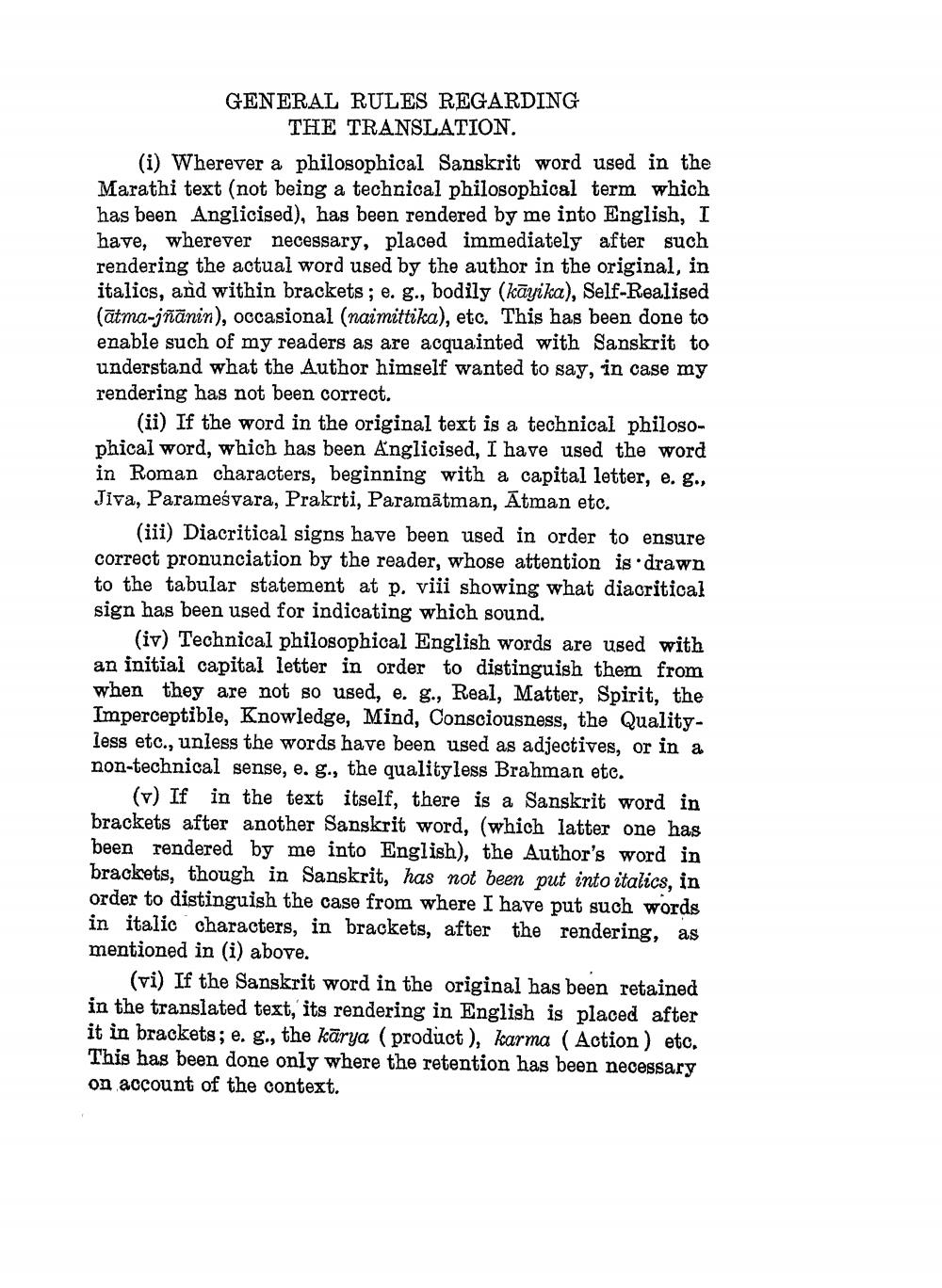________________
GENERAL RULES REGARDING
THE TRANSLATION. (i) Wherever a philosophical Sanskrit word used in the Marathi text (not being a technical philosophical term which has been Anglicised), has been rendered by me into English, I have, wherever necessary, placed immediately after such rendering the actual word used by the author in the original, in italics, and within brackets; e. g., bodily (kāyika), Self-Realised (ātma-jñānin), occasional (naimittika), etc. This has been done to enable such of my readers as are acquainted with Sanskrit to understand what the Author himself wanted to say, in case my rendering has not been correct.
(ii) If the word in the original text is a technical philosophical word, which has been Anglicised, I have used the word in Roman characters, beginning with a capital letter, e. g., Jiva, Parameśvara, Prakrti, Paramātman, Atman etc.
(iii) Diacritical signs have been used in order to ensure correct pronunciation by the reader, whose attention is drawn to the tabular statement at p. viii showing what diacritical sign has been used for indicating which sound.
(iv) Technical philosophical English words are used with an initial capital letter in order to distinguish them from when they are not so used, e. g., Real, Matter, Spirit, the Imperceptible, Knowledge, Mind, Consciousness, the Qualityless etc., unless the words have been used as adjectives, or in a non-technical sense, e. g., the quality less Brahman ete.
(v) If in the text itself, there is a Sanskrit word in brackets after another Sanskrit word, (which latter one has been rendered by me into English), the Author's word in brackets, though in Sanskrit, has not been put into italics, in order to distinguish the case from where I have put such words in italic characters, in brackets, after the rendering, as mentioned in (i) above.
(vi) If the Sanskrit word in the original has been retained in the translated text, its rendering in English is placed after it in brackets; e. g., the kārya (product), karma ( Action) etc. This has been done only where the retention has been necessary on account of the context.




